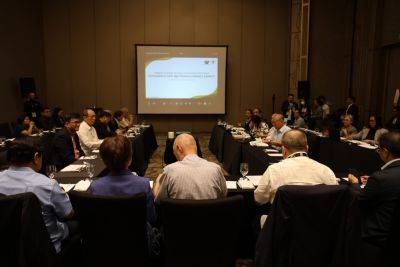How the friars killed Governor-General Bustamante
First of two parts
DURING the 333 years of Spanish rule in the Philippines, real power rested not on the civilian and military leaders but on the friars. They could be found in every parish in the country, ministering not only to the souls of the natives but to their other needs. A friar could reduce your taxes, lease you land to farm, or help you build a house.
They were a conservative lot and looked after their fiefdoms with the eyes of a hawk. Their feathers were ruffled with the arrival of Don Fernando Manuel de Bustillo Bustamante y Rueda in 1717 as the 37th governor-general of the Philippines. Usually called mariscal (marshal) as he was the first field marshal to govern the Islands, Bustamante was the former alcalde mayor of Trascala in Nueva España (modern-day Mexico).
The new governor was a stern soldier and an officer of the incomparable Spanish infantry. Already accomplished, he wanted to do more. And he believed that his appointment came straight from the king, who told him to brook no interference in the way he ran the colony.
But then and now, things were different in the Philippines.
It was not just a colony founded on trade but an outpost of Christianity. It was a medieval kind of Christianity, dark and foreboding. In 1619, Spain wanted to abandon the colony because it was expensive to maintain. But Fray Morales, the emissary of the friars, threw himself at the feet of King Philip and begged him not to abandon a quarter of a million souls who had been converted to Christ in the colony. The king yielded, and the order was revoked.
The Philippines was still a poor colony when Bustamante's ship arrived in Manila. He had sterling integrity and bravery unmatched in his time. His valor had been tested on the battlefields of Europe. One day, Bustamante found irregularities in the management of the royal funds, the hacienda real. He forthwith decided to introduce reforms.
AdvertisementOn a hot day, when small waves of heat seemed to writhe before him, the governor-general visited the treasury — and found it empty. Many loans had been given to unknown individuals, with the debts to be collected God knows when. That week, the galleon ship Santo Cristo was







